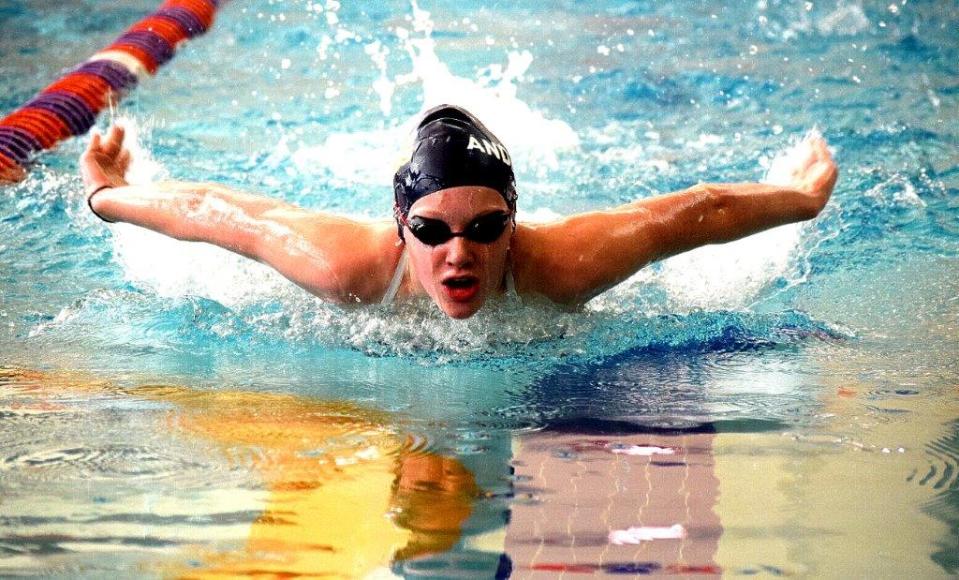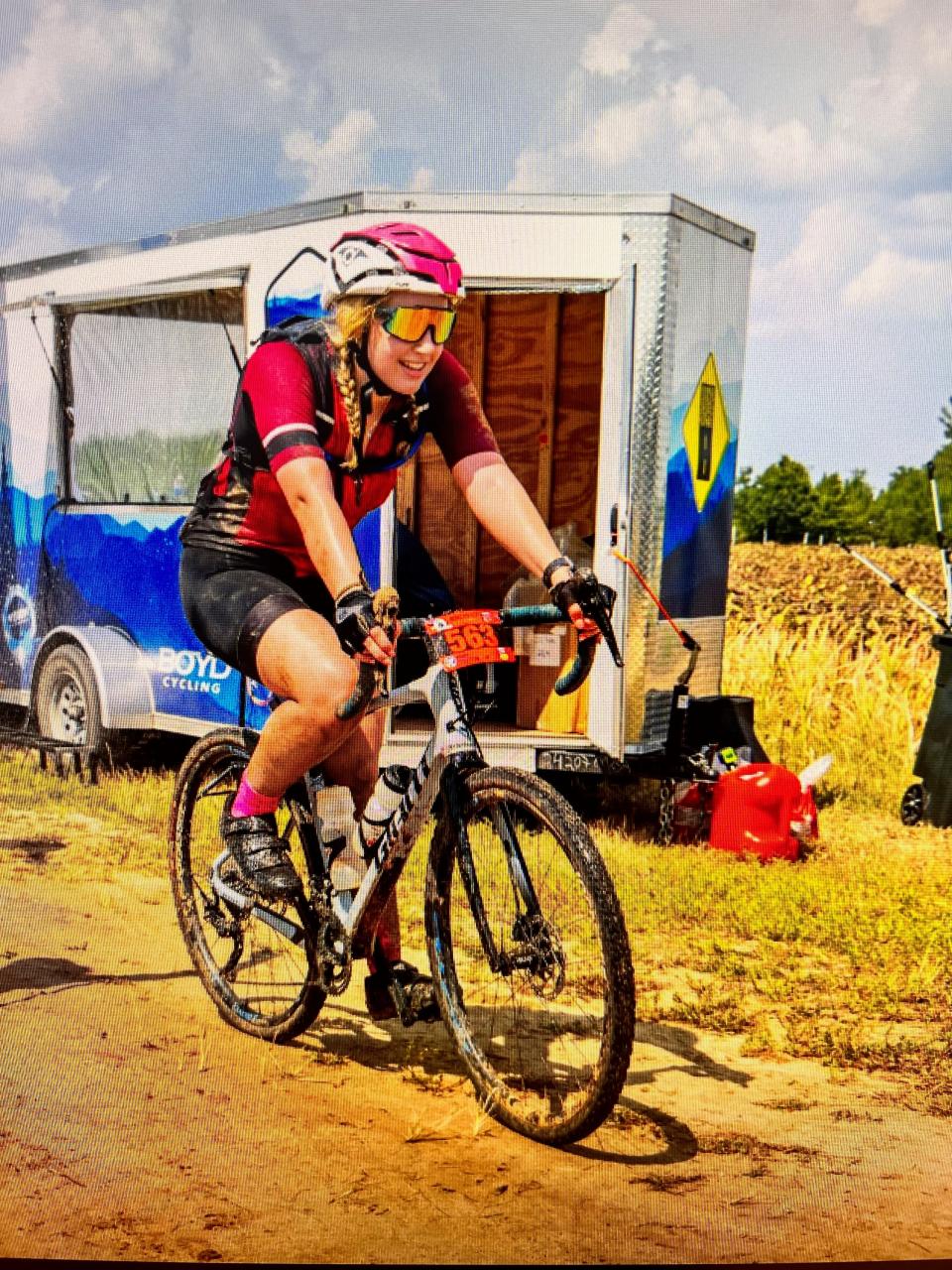Ironman 70.3 NC's youngest female competitor doesn't let vision loss hold her back
Ever since she was little, Marina Mears can remember people finding it hard to believe she's legally blind.
"No one knows until I actually tell them," she said of her condition.
Diagnosed with Stargardt's disease,a rare genetic eye disorder that happens when fatty material builds up on the macula, Mears can't see out of the front of her eyes and instead relies on peripheral vision.
On Saturday, the 19-year-old will take to the course in Wilmington for her first half Ironman, competing as the race's youngest female athlete.
While there are undoubtedly scary elements to racing with vision impairment, for Mears, this competition is another challenge in her life she won't back down from.
"I never thought I could do something like this," she said. "It's very cool to me because even with a condition like this, it proves I am capable of completing something this challenging."
WILMINGTON IRONMAN 2023 IRONMAN 70.3 NC returns to Wilmington: Traffic outlook, course details
UNCW GETS NEW ESPORTS LAB With new $60,000 gaming lab, what does the future of Esports look like for UNCW?

Participating in triathlons for quite some time, Mears — an Anderson, South Carolina, native — says her training for the competition has made her mentally stronger.
"I try to tell myself, especially when I'm training, that mentally you're capable of so much more than you think you are."
While Ironman does provide entries for competitors with disabilities, Mears says to compete as a visually impaired athlete, she would have to be tethered to someone in the swim and bike in tandem, something she hasn't trained for.
"They couldn't make any exceptions, and I think they're just accounting for the small percentage of people who are visually impaired who can't see anything at all."
According to the Centers for Disease Control and Prevention, around 12 million Americans have vision impairment, but only 1 million are completely blind.
That's not the only time in her life that her disability has created confusion. Given that she doesn't have total vision loss, she says some discount her struggles.
"It's hard for people to understand because there's such a stigma around blind people," she said. "(People think) if you're blind, you can't see anything at all, but that's just not true. Most visually impaired people are capable of so much."

Mears isn't the only athlete with Stargardt's disease. American Paralympic swimmer Anastasia Pagonis, who won gold in Tokoyo in 2020, also has the condition.
The 19-year-old says athletes like Pagonis, who aren't just competing but are excelling, are a beacon for negating false stereotypes.
"A lot of people in society, when you tell them you're blind, they automatically kind of knock you down and think you aren't capable of stuff, but in reality, that's not true."
Through more athletes talking about their disabilities, Mears hopes social stigmas will dwindle. For now, she's ready to tackle her biggest race yet, and nothing can get in the way.
"I think it's cool that I have this opportunity to spread awareness about people with disabilities doing races like this, that's the most important thing," Mears said.
This article originally appeared on Wilmington StarNews: Meet IRONMAN 70.3 NC's youngest female competitor

